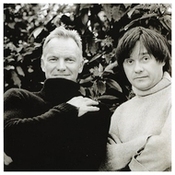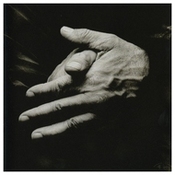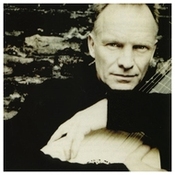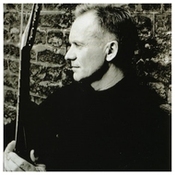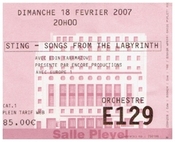
Sting celebrates his songwriter ancestor John Dowland on stage in Paris...
After announcing the reformation of the band Police, Sting embarked on another exciting adventure in Paris on Sunday evening: a European tour featuring songs accompanied by the lute of John Dowland, a delightfully 1600s pop songwriter.
The audience at the Salle Pleyel, the first stop on a 15-date tour that will take the British singer to six other countries (Switzerland, Italy, Germany, the Netherlands, Belgium, and Austria), first listened to two solo pieces performed by Bosnian lute virtuoso Edin Karamazov.
Then the pop star took the stage to the cheers of the audience. From the outset, the 55-year-old Sting tackled a major number with 'Flow, My Tears', the most famous lute song by John Dowland (1563-1626), over which hover the intimidating shadows of legendary performers such as the English countertenor Alfred Deller.
After a second, more lively song ('The Lowest Trees Have Tops'), which suited him like a glove, Sting expressed his 'honour' to be in Paris 'to celebrate the music of John Dowland'.
"I'm going to speak in English, otherwise the story would be more comical than it should be," jokes Gordon Matthew Sumner, aka Sting, no doubt alluding to the melancholy that emanates from many of Dowland's works—the composer himself famously summed it up ("Semper Dowland, semper dolens": always Dowland, always dolent)—and to the musician's struggle to gain recognition in his own country.
Before an audience not necessarily won over to Dowland's cause, Sting becomes didactic, explaining with great clarity that this Catholic musician, celebrated by kings, dukes, and princes across Europe, struggled to gain acceptance in the Protestant kingdom of England.
Dowland, however, spared no effort, as evidenced by this letter of allegiance to Queen Elizabeth's secretary, which he wrote in 1595, and from which Sting wisely reads passages between each of his "ayres" (songs derived from the court air).
The greatest lutenist of his time, Dowland was also one of the first singer-songwriters in history. Sting even considers this "pop music written in the 1600s." Without attempting to imitate classically trained singers, which were beyond his reach, he approaches these pieces with his style and vocal range—limited, but beautifully "natural"—as a rock artist.
The Newcastle native's frank timbre and slightly raspy voice work wonders in the trifle "Can She Excuse My Wrongs?" or the playful 'Fine Knacks For Ladies'.
Sting also knows how to move with his fine musicality and relaxed class in the caressing 'Come, Heavy Sleep' - reinforced by London's Stile Antico, a polished vocal octet - or 'Come Again', which reveals a beautiful meaning of the word.
Accompanied by Karamazov, the bassist and leader of Police sometimes joins him by grasping his lute with its labyrinth-shaped soundhole, which inspired the name of his hit Dowland CD 'Songs From the Labyrinth', released on the Deutsche Grammophon classical label last fall.
After a short hour of programming, the singer definitively conquers the hearts of the audience with very personal encores, notably an unprecedented 'Fields of Gold' (Sting) and 'Message in a Bottle' (Police), shrouded in the lute's own mystery.
Sting's Dowland tour, for which the acoustic comfort of symphony auditoriums was preferred to the immensity of stadiums, will take him to Basel (Monday), Florence (Wednesday), Rome (Thursday), Milan (Friday), Munich (February 25), Frankfurt (27), Hamburg (28), Amsterdam (March 1), Antwerp (3), Berlin (5), Düsseldorf (7), Vienna (8 and 10) and Stuttgart (12).
(c) 2007 AFP

